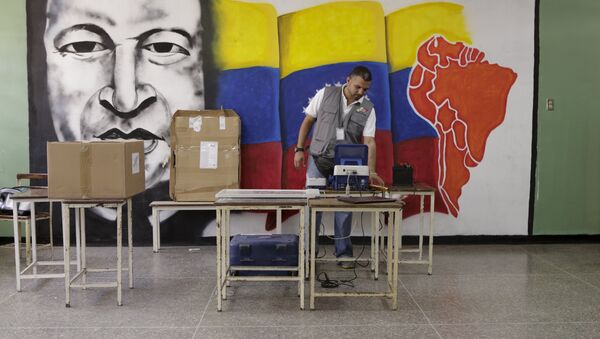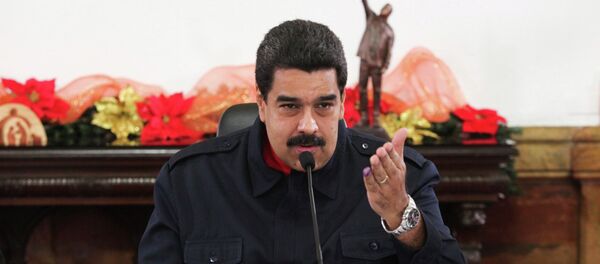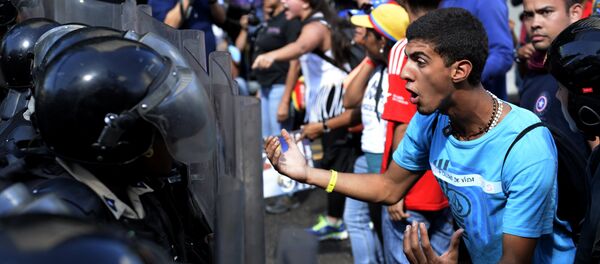Earlier, Venezuela's president Nicolas Maduro accused the US of using continued street protests to attempt a coup against his government and plotting to blow up the presidential palace, to "get their hands on Venezuelan oil".
"In terms of Maduro's concerns about the US, it's no doubt that the US has signaled Venezuela for regime change, that was true under the Bush administration, it's true under the Obama administration," Tinker Salas told Radio Sputnik.
"Maduro has not been able to provide exact proof of a smoking gun in the context of US intervention. But yes, we do know that Washington has signaled Venezuela for regime change, has imposed sanctions on Venezuela officials, and has continually pointed to Venezuela as this country that most seeks to have regime change in Latin America."
According to Tinker Salas, the roots of the crisis are "based on Venezuela's continued dependence on oil", which increased during the era of Chaves who "was using the high price of oil to try to mitigate social conditions in the country, including poverty."
As crude accounts for 96 percent of the country's export revenues, Venezuela is now suffering amid lower oil prices which fuel the opposition, consistently supported by Washington, Tinker Salas said.
"Venezuela is extremely vulnerable and oil continues to distort the economy, causing food shortages, promoting inflation… and now has emboldened the opposition who is in a process of a recall."
"All these governments — Brazil, Argentina, Bolivia, Ecuador or Venezuela — were still wholly dependent on the sale of commodities. So the Drop in commodity prices really has exposed the vulnerability of many of the leftist governments," he concluded.




